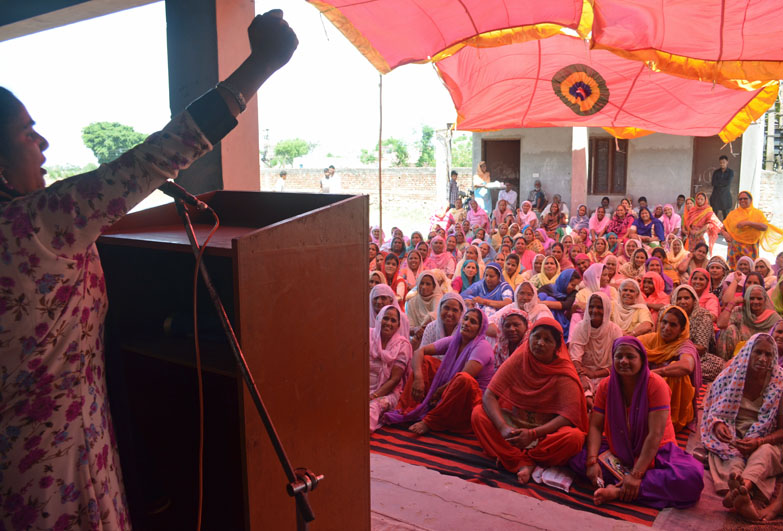India: domestic workers

It is estimated that there are over four million domestic workers in India. They remain part of an informal and unregulated sector, obscured in private homes, not recognised as workers but rather as ‘informal help’.
Their wages are, on average, only a third of those in other sectors, they have very limited social protections, and commonly suffer poor working conditions, exploitation, abuse and slavery.
Many domestic workers are migrants from poorer states and are among the most marginalised and socially discriminated populations in India. Most of them are Dalits or come from other disadvantaged castes and tribal minorities, many are landless, illiterate and innumerate, which increases their vulnerability and disempowerment.
Together with our partners The National Domestic Workers’ Movement (NDWM), our work:
- tackles exploitation and slavery of domestic workers who migrate within India
- focuses on workers who migrate from the poorer states, who are among the most marginalised and socially discriminated populations in India. We work in six Indian states to reduce the vulnerability of workers to exploitation and abuse
- supports the workers to organise, support each other and individually and collectively stand up for their rights. We have delivered training sessions on labour rights, safe migration, women’s rights benefiting thousands of migrant domestic workers
Women have been supported to organise themselves into hundreds of informal groups and federate into Trade Unions, creating a cadre of leaders and ensuring the sustainability of our work.
We facilitate workers’ access to welfare entitlements, such as pensions, insurance, economic aid, and educational support for children.
We have also worked with employers and individual workers to improve their working conditions and ensure no exploitation takes place. Through placement agencies, domestic workers and employers are linked and overseen, facilitating meaningful employment contracts and protection of basic rights.
We also work with state and national governments to ensure that domestic workers enjoy better working conditions and institutions which are more responsive to their needs and rights. This includes setting of a minimum wage for domestic workers.
- Project partners: The National Domestic Workers’ Movement (NDWM)
Our project in numbers:
- 10,000 domestic workers organised
- Nearly 50,000 domestic workers accessed information on labour and women’s rights, and safe migration
- Over 5,000 domestic workers accessed state entitlements
- 1,300 domestic workers increased their wages
- Over 1,000 domestic workers reported better working conditions
- Nearly 700 domestic workers per quarter acquired written contracts